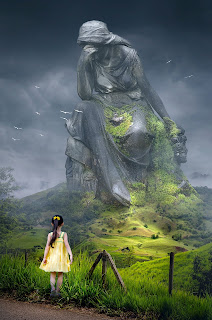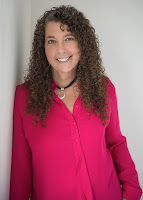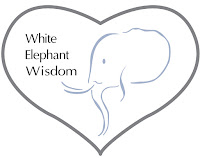Do you talk about death and grief with your children?
In my vast experience with death, dying and the resulting grieving process, I have noticed a common thread among just about every family I encounter. They do not include young children in their grieving process. They either go out of their way to 'protect' the little ones in their lives by hiding the truth of it with false smiles and placating sentiments, or they completely ignore the process altogether leaving the child alone with his or her imagination.
There are many reasons for this behavior and we have convinced ourselves that this is the kindest thing to do, but when is lying to a child ever the best way?
We seem to forget that children are 'born knowing'. When they arrive into this world they come with all the knowledge they'd gained from previous life cycles as well as a strong connection to the other realms and dimensions they existed in before agreeing to drop into our physical world. It is here, by the average age of 3 years, that they 'forget' all of that Soul knowledge and begin to live from a place of Ego-mind, reacting only to stimuli from the physical world around them.
How many of you can remember your small children telling wild stories of "when they used to be big like Mommy" (remembering a past life cycle?) or "Grandpa just told me" (when Grandpa has been dead for years)? How do you respond to these encounters that our society has dubbed 'the imagings of a child'? Do you immediately try to convince the child these things are only in their imagination?
So many of us have done this for so long, generations really, that we have made it a habit to convince our kids that those things are not real, not understanding that we are effectively shutting down our children's natural ability to accept painful circumstances in their lives.
"When left to their own imagination, children often assign blame to themselves for Mommy being sad all the time."
How so you may ask? Because children thrive on truth. They can smell a lie a mile away and when a beloved adult in their lives like a parent hides a truth from them, covers it in sweeteners or outright ignores their need to know by saying things like, "This is not for children to worry about now go play" they are left to make up their own minds about the situation, usually by assigning blame to themselves for Mommy being sad or for Daddy being so angry all the time.
While this is certainly true for many of life's occurrences and challenges, it is especially true when it comes to death, dying and grieving. Some of us have convinced ourselves that funerals are no place for children. We believe that hiding the gruesome details of seeing our dead off is a loving thing to do for our children. We have convinced ourselves that we must 'remain strong for the children', effectively hiding our own pain and sorrow when a child comes into the room by putting on an artificial smile and a sing-song voice as we find ways to dismiss their questions. We rationalize this in our own minds by thinking we are saving them from a tainted childhood...there is, after all, plenty of time for them to learn the truth about death when they get older.
Well I suppose these methods are all well and good....until the 'unthinkable' happens and those small children suddenly lose a sibling or a parent. Then what are we left with? We have no choice but to involve them in some way but still, we try and sugar coat it as much as possible and, again, convince ourselves that we must not let them see our own pain.
But I think there is a better way. I think we SHOULD be authentic with our kids, even the littlest of the littles. Of course there are age-appropriate ways to go about this since a child's brain development doesn't really allow them to completely understand the concept of death until they reach age 7 or so, but even tiny children can understand it when presented in creative ways like sharing a children's story book on the subject or reminding them of that time the family cat reached the end of it's life. (Were any of you told the family pets simply 'ran away', leaving you to feel like it was your fault or the fault of your mean big sister for letting them outside?)
Include the young ones in ritual & ceremony
With all the research out there proving the importance of including children in the realities we face as individuals and families you'd think we would have made great strides in the area of death and grief but we have not. The simple explanation for this is that we, as adults haven't quite learned to accept death as a natural part of life yet and so how can we teach what we, ourselves don't know to our children?
Besides using story books, another way to involve children in the memorializing and grieving process is to include them in simple rituals. Adding a special moment to the memorial service by having the children light a candle for their Mom in heaven allows them to feel connected to the adults around them and gives them a sense of 'belonging' as opposed to being left at home feeling disconnected and even possibly punished.
Developing a ritual around caring for the gravesite is another good way to engage a child. Take them with you as you clean up the area, polish the headstone and plant fresh flowers for your first-born who died. Encourage the surviving children to leave trinkets like special stones, seashells or crafts they've made as little gifts to the departed, effectively keeping them involved and ensuring the departed child still has a place in the family.
It's also important to remember that as children who suffered significant loss grow, their needs change as their ability to understand death expands. A child who lost their mother at 4 years old might be happy with an occasional story book and doesn't necessarily understand the finality of death but as that child matures and the knowledge that their Mom will not be here to help them choose a prom dress, watch them graduate high school or hold their own first born child sinks in, they can find themselves experiencing deep grief years after the death has occured.
This type of delay in feeling the pain of grief can lead to all sorts of confusing thoughts and feelings, often times resulting in strange new behavior patterns in our children that we, as parents, may misunderstand and just write off as normal adolescent angst or teenaged rebellion. Remember, if the child has no framework for understanding their grief to begin with then they themselves may not even recognize what they are going through later in life is part of their grief journey.
So it's up to us, as a society to bring down the walls we've all put up to 'guard our children' from death. Honoring our children by including them in these most sacred parts of the human story will help foster a stronger foundation for them to build their own lives upon, secure in the knowledge that even if (when!) someone they love dies, they will actually be 'ok'.
By chipping away at the myths about death and dying and learning to see this as a very natural and normal part of life, we are effectively healing one of the oldest human traumas of all time. Collectively, we can usher in a new age where whole communities are involved in supporting the bereaved through all the stages of their grieving process, thus normalizing discussions around the dead and helping children feel more connected. After all, it takes a Village.
As always, I welcome your thoughtful comments.
Blessings on your journey to Self-Discovery after loss,
Vicky
Vicky Edgerly is a Reiki Master and Spiritual Teacher who uses the wisdom she’s gained through study & personal experience to assist others in navigating life’s challenges. As someone who has chosen to grow from her STE’s (‘Spiritually Transformative Events’ ….a life event that changes one's belief systems and outlook on life), she uses her knowledge and experience to empower others.
Vicky specializes in showing folks the way through the grieving experience by applying metaphysical practices and offers private sessions as a “Grief Journey Guide”. She has worked closely with The Afterlife Education Foundation from Portland Oregon for several years and was featured in open panel discussions at their annual conferences
Grieving Part 1...The Early Days
Grieving Part 2...When the Party's Over






No comments:
Post a Comment